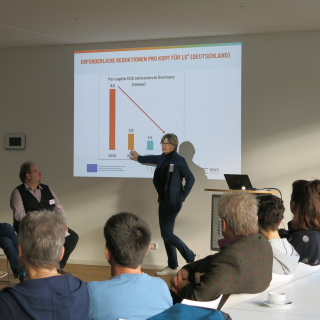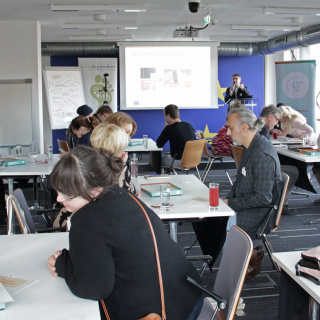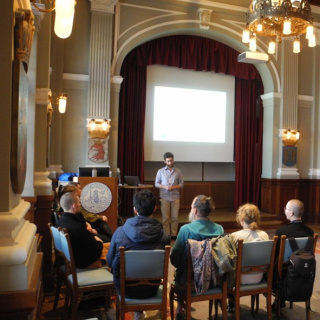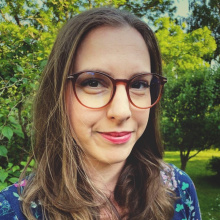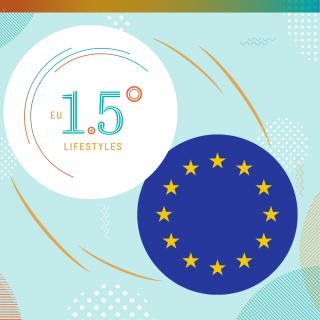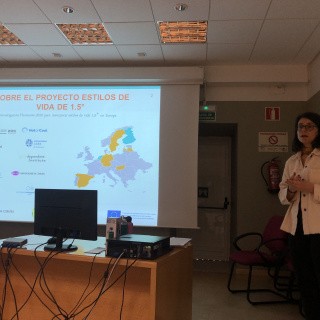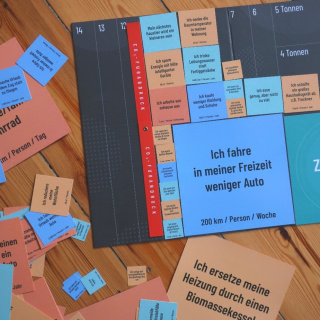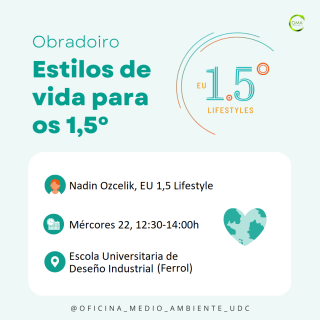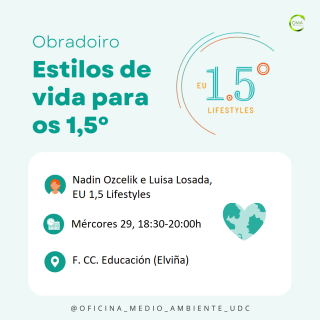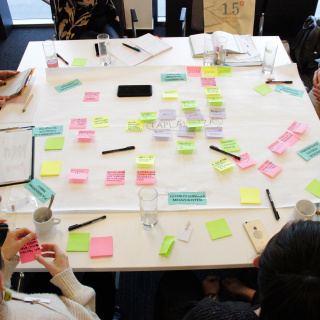Search
Search results
STICKS AND CARROTS: What should governments do for radical lifestyle change? Our 4th press release is out!
New research in five EU countries reveals stakeholders’ views on what is needed to enable a shift towards 1.5 °C-compatible lifestyles
DELPHI workshop - Germany
During the Delphi process 25-30 experts in each partner country will discuss the links between climate change and the welfare state and business models. The purpose of this work is to collect, analyse, and compare expert evaluations of the feasibility and desirability of welfare system policies and business model scenarios compatible with 1.5° lifestyles.
DELPHI workshop - Hungary
During the Delphi process 25-30 experts in each partner country will discuss the links between climate change and the welfare state and business models. The purpose of this work is to collect, analyse, and compare expert evaluations of the feasibility and desirability of welfare system policies and business model scenarios compatible with 1.5° lifestyles.
Workshop about Rebound Effects for citizens was held in Lund
On the 22nd of April, Lund University held the first out of five planned Workshops about Rebound Effects of 1.5°C lifestyles.
Anna Elfström
Anna Elfström is working as a research assistant for the International Institute of Industrial Environmental Economics (IIIEE) in Lund, Sweden. She holds a master’s degree in Sustainability Science and Environmental Studies from Lund University and has a background in coordination and administration from her work within non-profit organizations and the leisure industry.
EU Stakeholder Thinking Lab
The EU-level Stakeholder Thinking Lab on the 15th of September 2023, 10:00-15:30, focuses on overcoming structural barriers to achieving a social-ecological transformation. The event is based on results from the EU 1.5° Lifestyles project and will bring together key players and actors from policy, civil society, and the media on the European policy landscape, providing a space for deliberation…
Spreading the Word for a Low-Carbon Future
Our project partner University of A Coruña has been spreading the word about the pathways for a more low-carbon lifestyle with the university community during the Environmental March initiative.
1.5 ° Lifestyle options discussed by more than 100 citizens in 5 European countries – which lifestyle changes were acceptable for our lab participants?
During our Citizen Thinking Labs (CTLs) we exposed more than 100 citizens from 5 European countries to a set of low-carbon lifestyle options to evaluate A) whether they were already implementing them, would be willing to implement them in the near future, or would reject the options, and, B) what the reasons for their choices were.
Environmental March: Climate Puzzle Workshop
From the EU 1.5° Lifestyles project we collaborate with the Environment Office (OMA) to organize a workshop session with students of the Social Education degree, at the Faculty of CC. Education (Elviña) in the framework of the Environmental March.
Environmental March: Climate Puzzle Workshop
From the EU 1.5° Lifestyles project we collaborate with the Environment Office (OMA) to organize a workshop session with students of the Social Education degree, at the Faculty of CC. Education (Elviña) in the framework of the Environmental March.
Co-Creation Workshop - Rebound effects - Germany
The co-creation workshops with 12-20 households in each country have the purpose of improving our understanding of the likelihood and scale of direct and indirect environmental and economic rebound effects.
Co-Creation Workshop - Rebound effects - Hungary
The co-creation workshops with 12-20 households in each country have the purpose of improving our understanding of the likelihood and scale of direct and indirect environmental and economic rebound effects.


